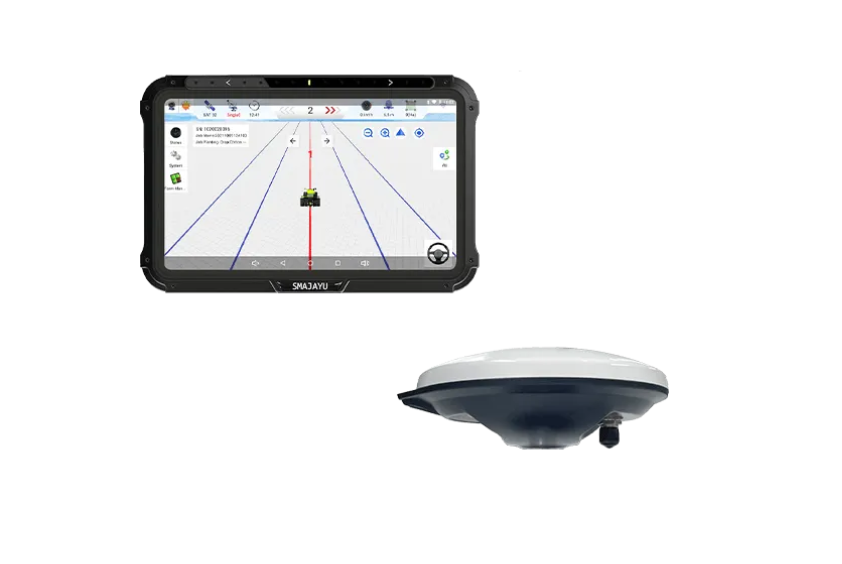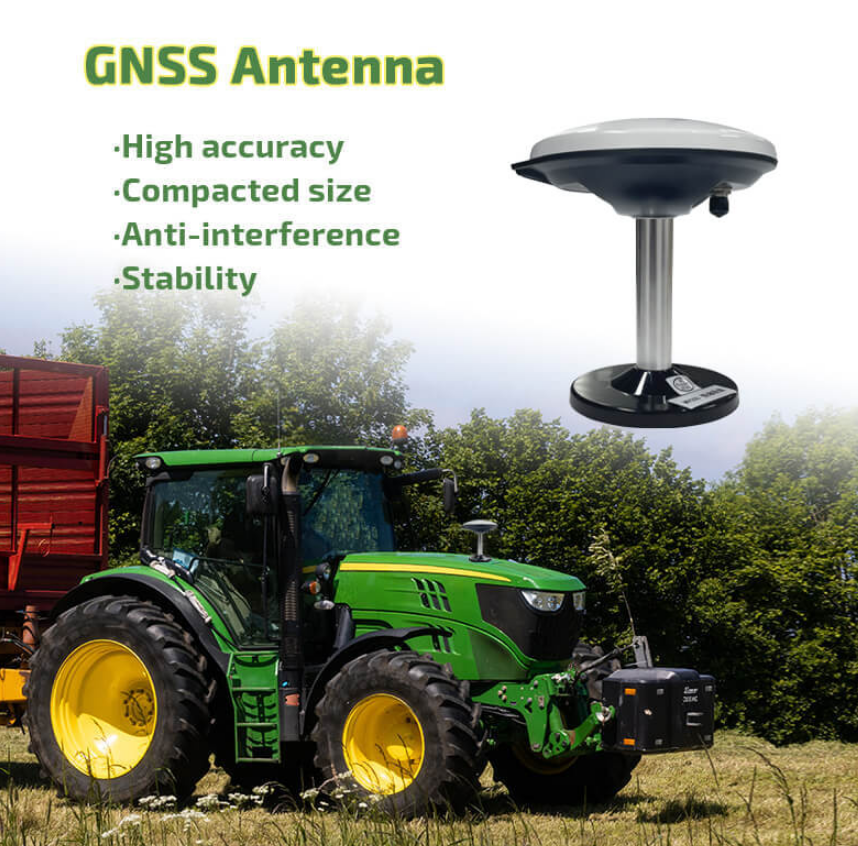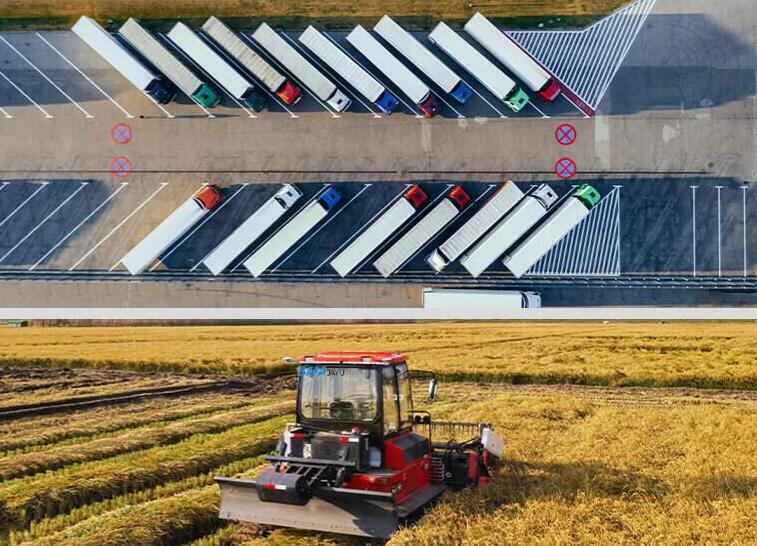Explore how accurate GPS receivers are transforming modern agriculture by boosting precision, efficiency, and sustainability. Understand the industry’s challenges and see how advanced GPS technology tackles resource management, labor shortages, and environmental issues. Find tips on selecting the ideal GPS receiver for your farming needs and discover professional solutions from SMAJAYU, a top manufacturer of reliable, high-precision agricultural devices. Enhance your farming operations with expert support and cutting-edge GPS technology.

Introduction to Modern Agriculture and GPS Technology
1.1 The Evolution of Agriculture
Agriculture has always been at the heart of human civilization, evolving from simple subsistence farming to highly sophisticated agribusinesses. The adoption of technology has played a crucial role in this transformation, allowing for increased productivity, efficiency, and sustainability.
1.2 The Need for Precision
As the global population continues to grow, the demand for food has never been higher. This necessitates the adoption of precision agriculture practices, which rely heavily on accurate data to optimize crop yields, minimize waste, and reduce environmental impact.
1.3 Importance of GPS in Agriculture
Global Positioning System (GPS) technology has become indispensable in modern farming. Accurate GPS receivers enable farmers to conduct precise field operations, manage resources more efficiently, and improve overall farm management.
Current Status of Agriculture and the Need for Accurate GPS Receivers
2.1 Increasing Demand for Food Production
The agricultural sector faces the immense challenge of producing enough food to feed a growing global population. This requires maximizing the productivity of available land through the use of advanced technologies, including accurate GPS receivers.
2.2 Climate Change and Environmental Concerns
Climate change has introduced new variables into the farming equation, making weather patterns more unpredictable and increasing the need for precise data to inform farming decisions. Accurate GPS technology helps farmers adapt to these changes by providing reliable data for weather forecasting, soil analysis, and crop monitoring.
2.3 Economic Pressures and Resource Management
Farmers are under constant economic pressure to reduce costs and increase profitability. Accurate GPS receivers can help in resource management by ensuring the optimal use of inputs such as seeds, fertilizers, and water, thereby reducing waste and lowering costs.
Challenges in the Agriculture Industry
3.1 Resource Scarcity
One of the biggest challenges in agriculture is the scarcity of resources, including water, arable land, and labor. Efficient resource management is critical to overcoming these challenges, and GPS technology plays a pivotal role in achieving this efficiency.

3.2 Labor Shortages
The agricultural sector is experiencing a labor shortage, particularly in rural areas. Automation and precision farming technologies, such as GPS-guided tractors and drones, can help bridge this gap by reducing the reliance on manual labor.
3.3 Sustainability and Environmental Impact
There is a growing demand for sustainable farming practices that minimize environmental impact. Accurate GPS receivers facilitate precision farming, which reduces the overuse of fertilizers and pesticides, thus promoting more sustainable agricultural practices.
How Accurate GPS Receiver Can Solve Agricultural Challenges
4.1 Enhancing Precision Farming
Accurate GPS receivers are at the core of precision farming, enabling farmers to conduct field operations with pinpoint accuracy. This includes planting, fertilizing, and harvesting, which can all be done with minimal overlap and waste, resulting in higher efficiency and lower costs.
4.2 Improving Crop Management
With precise location data, farmers can monitor crop health more effectively. GPS technology allows for detailed mapping of fields, which helps in identifying areas that need attention, such as those affected by pests or diseases, leading to more targeted and effective treatments.
4.3 Optimizing Resource Usage
Accurate GPS receivers help in the precise application of inputs like water, fertilizers, and pesticides. This not only improves crop yields but also conserves resources and reduces environmental impact. For instance, variable rate technology (VRT) enabled by GPS allows for the application of the right amount of inputs at the right place and time.
Tips to Choose the Best Accurate GPS Receiver for Farming
5.1 Assessing Accuracy and Reliability
When selecting a GPS receiver for agricultural use, accuracy is paramount. Look for receivers that offer high precision, typically within a few centimeters. Reliability is equally important to ensure consistent performance in various field conditions.
5.2 Considering Compatibility and Integration
Choose a GPS receiver that is compatible with your existing equipment and software. Integration with other precision farming tools, such as automated tractors and farm management software, is essential for seamless operation and data synchronization.
5.3 Evaluating Ease of Use and Support
The usability of the GPS receiver is another critical factor. Opt for devices with user-friendly interfaces and robust customer support. Professional service and support from the manufacturer, like SMAJAYU, can make a significant difference in the implementation and maintenance of the technology.
Professional Services from SMAJAYU
6.1 Expertise in GPS Technology
SMAJAYU is a leading manufacturer of accurate GPS receivers, offering advanced solutions tailored for the agricultural sector. Their expertise in GPS technology ensures that farmers receive the most reliable and precise devices on the market.
6.2 Comprehensive Support and Training
SMAJAYU provides comprehensive support and training for their products, ensuring that farmers can effectively utilize the technology. This includes on-site training, online resources, and ongoing technical support to address any issues that may arise.

6.3 Custom Solutions for Agriculture
Understanding the unique needs of the agricultural industry, SMAJAYU offers customized GPS solutions that cater to specific farming requirements. Whether it’s for small-scale farms or large agribusinesses, SMAJAYU’s products are designed to enhance productivity and efficiency.
Conclusion
Accurate GPS receivers have become an essential tool in modern agriculture, addressing many of the industry’s challenges and paving the way for more efficient and sustainable farming practices. By choosing the right GPS receiver, farmers can significantly improve their operations, leading to increased productivity and profitability. SMAJAYU stands out as a reliable partner in this endeavor, offering high-quality GPS solutions and professional support to meet the evolving needs of the agricultural sector.
As the demand for food continues to rise and environmental concerns become more pressing, the adoption of precision agriculture technologies, supported by accurate GPS receivers, will be crucial in ensuring the future sustainability and success of farming worldwide.


